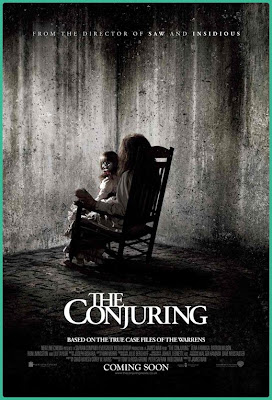2019 In Review: The Farewell
My Big, Sad, Chinese Wedding
• Ever had an old, sick granny?
• Do you love A24 Films?
• Ya like China?
• Are you dying to see A24 produce a beautiful, Chinese piece of art about an old, sick granny?
Well my friends, have I got the film for you.
* * * * *
On the surface, Lulu Wang’s The Farewell is a film about literally saying goodbye; the depiction of family gathering for the same great cause: To prepare for the end of a loved one’s life. On this surface, The Farewell is not only sobering, but sympathetic; a piece that we as viewers can connect with on a deeper, relatable level.
But The Farewell is about more than a goodbye, as it’s also represented by a bold faced lie; a lie not only based on a true story, but based on ancient Chinese tradition in refraining from disclosing terminal illness to the elderly once becoming diagnosed.
The film is centered around said unbeknownst diagnosed; the beloved family grandmother Nai Nai, who has no idea that she’s only a few months left to live. Given the tender and endearing nature of the precious elderly Nai Nai, naturally the film is expected to have audiences bawling come her inevitable demise, but Wang is far more invested in the runtime spent with the family celebrating Nai Nai’s life, rather than grieving upon her death.
There is something of a cynical presence to the lie kept by the central family, the morality of the situation constantly questioned by the film’s protagonist Billi (played by the less crazy rich, but still Asian Awkwafina in a genuinely Oscarworthy performance), but through Billi’s eyes, what begins as a stubborn demand for speaking truth becomes a personal understanding for the silence of a lie.
The themes of keeping up with such a seemingly terrible charade are as complex as they are simple, expressed in various sections of the film through multiple members of the family, allowing for a range of honest behaviors peeling back the dimensions of lovable characters in ways that are as hilariously forthright as they are genuinely funny.
By staging an arranged wedding between Billi’s cousin and fictional Japanese fiancé, the family gathers in China for hijinx to ensue as a means to spend one last hoo-rah with granny Nai Nai before she kicks the bucket. It’s like My Big Fat Greek Wedding with Chinese people, only a LOT more depressing. So much of the runtime is spent sitting down with these characters doing nothing at all, and yet that’s exactly what makes us want to spend time with them.
There’s a sense of grieving throughout these characters, even with Nai Nai being alive and questioning the strange sadness lingering among her suddenly somber family, and it’s that sealed secrecy the family maintains that allows their grief to come off as not just heartfelt but humorous.
Characters have random outbursts of tears and touching words as they thank their grandmother for all she’s ever done for their aspiring family, and yet Nai Nai being kept in the dark keeps their honesty to such carefully expressed remorse, that Wang often translates Nai Nai’s confusion as outright comedic. Rather than downplay the heavy nature of the situation, Wang keeps everything light enough in order to prepare us for the worst, as a means to build a great anticipation for devastation that could come at any given moment.
One of the funniest moments of the film ironically takes place in a cemetery, as Nai Nai wishes the family to pay respects to their late ancestors. Nai Nai practices ancient tradition, speaking her grievances, bowing multiple times as the family joins her, groaning annoyingly at the repetitive motions, and it’s a moment as comically light as this in a setting that feels so potentially dark, that Wang has her audience right where she wants them: In the present.
This isn’t a film about facing a grim future, and Wang is shouting like a Chinese roll call. Nai Nai is constantly attempting to pass her wisdom onto Billi; from traditional yoga and meditation to small words in order to keep her in the present. Nai Nai isn’t spitting any new knowledge but her humbleness in teaching Billi how to simply live, even among her own unbeknownst dying, is tragic and beautiful.
The most poignant words of the film don’t even come from Nai Nai, rather Billi’s uncle who after having been drinking goes on a ramble about how the family must conceal the terrible truth from Nai Nai as a symbol of carrying the burden of grief, so that she does not have to.
Even with the debatable final moment of the film as the credits come to a close, what Wang does so beautifully by building to the departure of Nai Nai, is that through the eyes of a functioning family, she provides an initial setup without any potential send-off. Up until a point, all the family members know as characters, and all we know as moviegoers is that at some point, Nai Nai will pass away, and none of us know the moment it will happen. With that great anticipation alone, Wang is able to stretch her film to tell a story so personal and intimate, that it’s never once about death, but about life, and with that, she has created one of the most legitimately endearing and touching films of 2019.
And for that, we thank you.
gonna go cry now kthanksbye
*10 points to Awkwafina
*10 points to Lulu Wang



